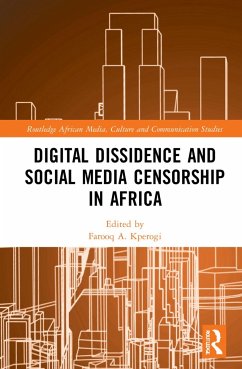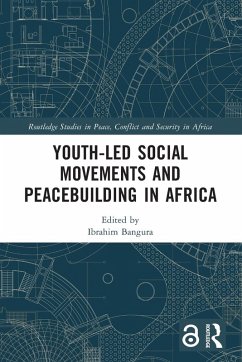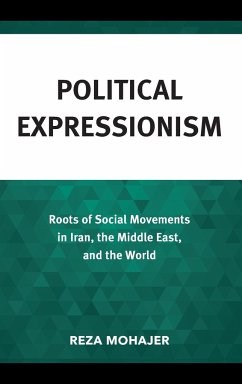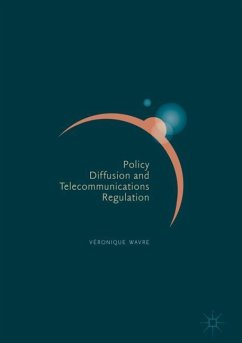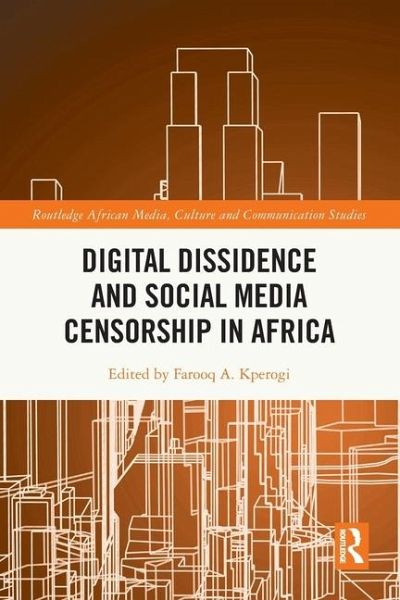
Digital Dissidence and Social Media Censorship in Africa
Versandkostenfrei!
Versandfertig in 1-2 Wochen
56,99 €
inkl. MwSt.
Weitere Ausgaben:

PAYBACK Punkte
28 °P sammeln!
This book reflects on the rapid rise of social media across the African continent, and the legal and extra-legal efforts governments have invented to try to contain it. It reflects on the Chinese influence in African governments' clampdown on social media and the role of Israeli NSO Group Technologies.





